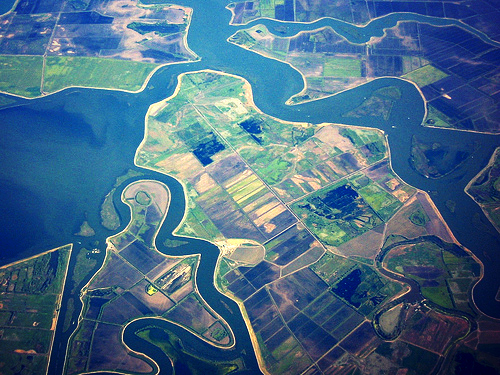By Chris Reed.
Just six weeks ago, Gov. Jerry Brown’s hopes for a huge, difficult legacy project to solidify California’s statewide water distribution system – one funded by water districts, not directly by taxpayers – appeared in bad shape.
Years of lobbying for what the Brown administration dubbed the WaterFix project had produced more indifference and outright opposition than support. The $16.7 billion plan would build two 35-mile-long, 40-foot-high tunnels to take water south from the Sacramento River to the State Water Project pumps in the town of Tracy. The governor argued that this would sharply reduce the intermittent heavy pumping that played havoc with endangered species in the fragile Sacramento-San Joaquin River Delta and would firm up supplies both for Central Valley farmers and the 20 million-plus residents of Southern California.
But in September, the board of the Westlands Water District – which serves 600,000 acres of farmland in King and Fresno counties and is the largest U.S. agricultural district – voted 7-1 against providing about $3 billion for the project. Westlands officials trashed claims made for WaterFix, questioning whether it would actually stabilize the Delta ecosystem and predicting cost overruns.
In November, the Trump administration announced that the federal government would not provide any financial assistance to get the project built. While the Interior Department statement was not unexpected, it contributed to the sense the WaterFix proposal was foundering. By February, Brown administration officials had put the word out they would accept building only one tunnel under the delta and adding a second later.
MWD backed scaled-back project, then changed mind
The death of the original plan appeared confirmed on April 2 when officials with the Metropolitan Water District of Southern California – the giant, politically powerful water wholesaler serving 19 million people – issued a memo expressing support for the one-tunnel option. The rationale: a lack of a consensus for the two-tunnel plan among the water districts south of Sacramento that would need to pay for the project.
But after intense lobbying by the Brown administration, on April 10, the MWD board voted by a 3-to-2 margin to endorse the two-tunnels project and to agree to pay for about two-thirds of the tab – about $10.8 billion. The weighted vote, based on the size of individual agencies, came over the objections of the MWD board’s single largest member, the San Diego County Water Authority.
Momentum continued to build last Wednesday when the board of the Santa Clara Valley Water District – the biggest water agency in Silicon Valley – voted 4-3 to commit its 2 million ratepayers to pay up to $650 million for the project, or nearly 4 percent of the total tab. Santa Clara officials had previously narrowly opposed providing funding.
On Thursday, Brown hailed the decision in a speech to a conference of the Association of California Water Agencies in Sacramento. But the governor also warned that the project still had big obstacles that went beyond getting more water districts to agree to share construction costs. He noted that state and federal regulators still had yet to issue required permits.
On this front, WaterFix may face more skepticism in Brown’s backyard than in Washington. As CalWatchdog reported last year, the Trump administration gave a key senior Interior Department post to Colorado lawyer David Bernhardt, a veteran of California water wars and a critic of the federal government’s traditionally high-profile role in land-use decisions in Western states.
Meanwhile, the California Water Resources Control Board has sided with environmentalists in a long list of previous decisions. In filings with the state board, Restore the Delta and several other environmental groups have challenged the governor’s project on its central claim: that it improves the health of the Delta ecosystem.
Even if the state and federal permits are granted, the tunnels plan still faces hurdles. The Bay Area News Group reportedlast week that more than two dozen state and federal lawsuits had been filed against the project.
[divider] [/divider]





